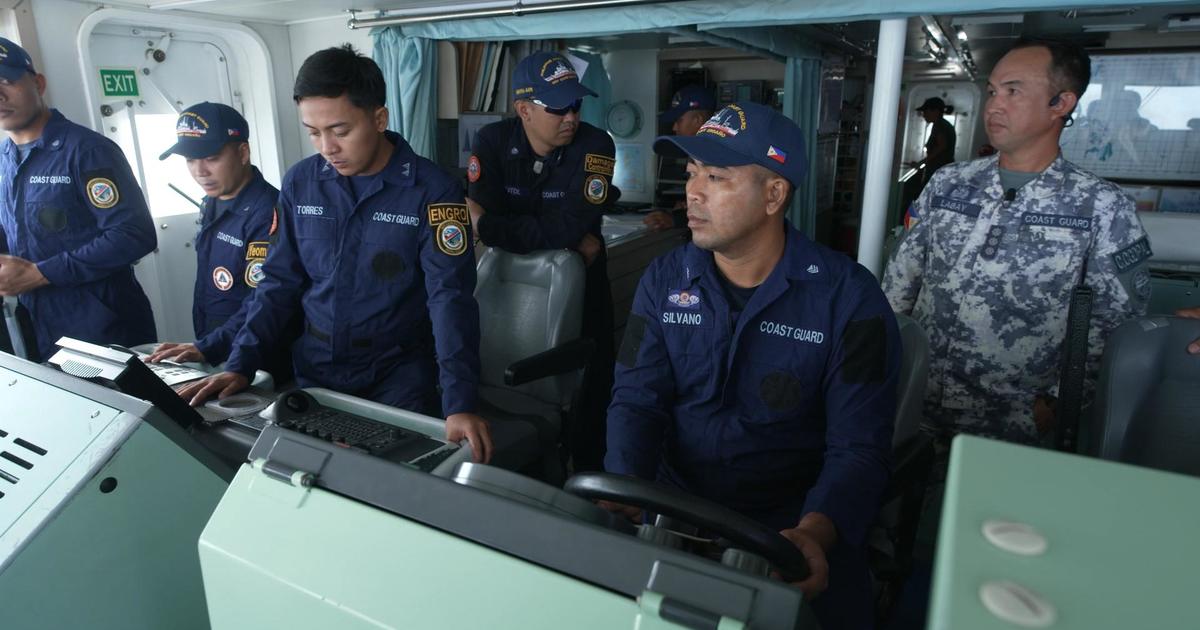An escalating series of clashes in the South China Sea between the Philippines and China could draw the U.S., which has a mutual defense treaty with the Philippines, into the conflict.
A 60 Minutes crew got a close look at the tense situation when traveling on a Philippine Coast Guard ship that was rammed by the Chinese Coast Guard.
China has repeatedly rammed Philippine ships and blasted them with water cannons over the last two years. There are ongoing conversations between Washington and Manila about which scenarios would trigger U.S. involvement, Philippine Secretary of National Defense Gilberto Teodoro said in an interview.
“I really don’t know the end state,” Teodoro said. “All I know is that we cannot let them get away with what they’re doing.”
China as “the proverbial schoolyard bully”
China claims sovereignty over almost all of the South China Sea, through which more than $3 trillion in goods flow annually. But in 2016, an international tribunal at the Hague ruled the Philippines has exclusive economic rights in a 200-mile zone that includes the area where the ship with the 60 Minutes team on board got rammed.
China does not recognize the international tribunal’s ruling.
WW3, great for profits!
Except, China is not trying to expand its territorial waters “because capitalism”…
Chinas already fully capitalistic.
I’m aware…but it’s still not the reason they are attempting to expand their territorial waters…
Why are they attempting to expand their territorial waters?
It’s about expanding their ability to project naval power in general, but more specifically, trying to to build effective defensive counters against potential future naval blockades and maritime containment e.g. Island Chain Strategy
That’s oversimplified, and there are other aspects to it, including domestic political cultural ones, but naval power and national security is the most significant.
I am not taking any position on justification, legal standing, or strategic prudence for this strategy.
There are any number of white papers, from both Chinese and American security organizations/think-tanks, that will cover the subject in much greater depth if you’re interested.
That sounds like a lot of words to say capitalism.
Are you saying that national security strategies, and war in general, didn’t appear in this world until capitalism emerged?





